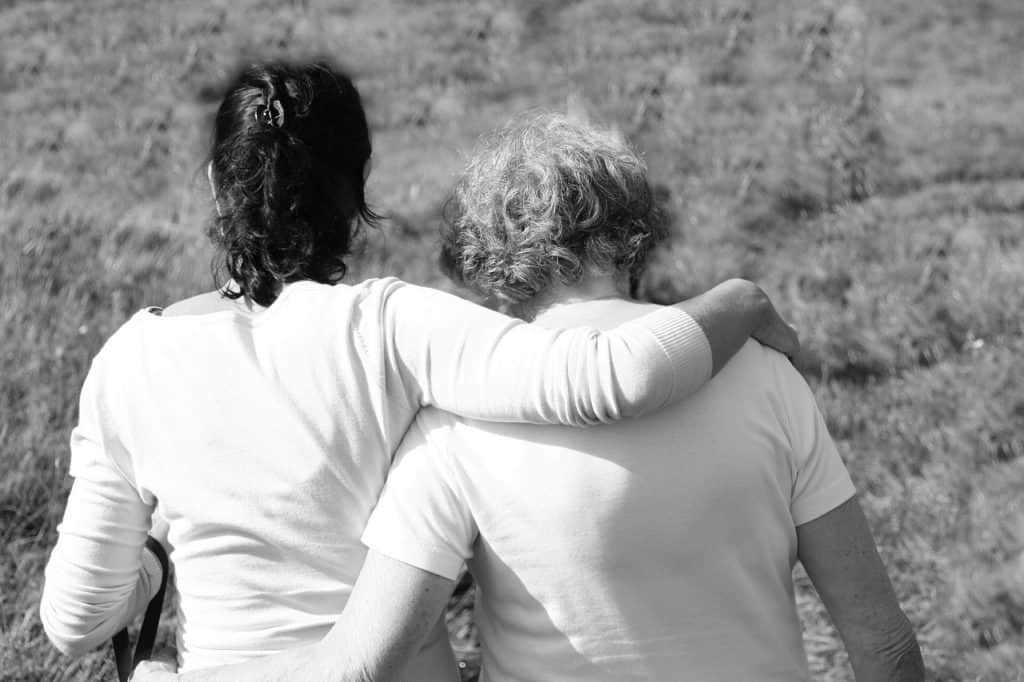“Grieving is a Gift” may not settle well with you. One doesn’t realize how much effort grieving takes until life hands you a situation with which you experience grief.
Grief and grieving aren’t just for death. You can experience grief in the loss of a job, friendship, a move, divorce, a child marrying… the list is inexhaustible.
How we grieve is of great importance and grieving well takes some work. I am going to recommend to you that you grab a copy of the book “Good Grief” by Granger E. Westberg. This book has become a valuable tool for me and I hope you will read and re-read it as necessary. Stop in at your local Christian book store or pop over to amazon.com and order yourself a copy.
Stages and Phases
Dr. Erich Lindemann, a professor of psychiatry at Harvard, described the stages of grief and the grieving process in his article “Symptomology and Management of Acute Grief” published in the American Journal of Psychiatry, April 1991. Granger says “In this remarkable study he (Dr. E Lindemann) demonstrated the difference between normal grief reactions and abnormal or morbid grief. He showed the importance of helping the grief-stricken face up to the struggle of “working through” grief.”
Granger also goes on to list the stages of grief and reminds us all that we will not necessarily go through all the stages, much less in the same order.
- Stage One We are in a state of shock
- Stage Two We express emotion
- Stage Three We feel depressed and very lonely
- Stage Four We may experience physical symptoms of distress
- Stage Five We may become panicky
- Stage Six We feel a sense of guilt about the loss
- Stage Seven We are filled with anger and resentment
- Stage Eight We resist Returning
- Stage Nine Gradually hope comes through
- Stage Ten We struggle to affirm reality
When grief comes knocking

Looking back, I would say that my first experience with grief was when I graduated high school. It was a major change in my life. I was moving on from being a kid in high school to becoming a young adult. Graduating meant that I was leaving the comforts of the life I knew and embarking on a brand new adventure and I was scared.
Going to graduation parties became a real struggle. I remember sitting in the car and crying not wanting to go. Going meant it was over and moving on just seemed daunting. I was grieving a personal loss. I was upset that everyone else seemed happy celebrating, but I just thought of graduation differently, and that was okay as long as I didn’t continue feeling that way. The work of grieving had begun. This grieving was a gift and it was preparing me for bigger griefs I would encounter in life.
Eventually, the feeling faded. I began to happily anticipate my college training in the Veterinary Technician program and looked forward to registration day at MATC.
Grieving has no time limit, it’s not an exact science
Grieving will be different for us all. It is within that difference we need to be patient with one another. We lead different lives, have different responsibilities and will have our own unique way of grieving. What may work for me, most likely won’t work for you and that is okay, as long as we grieve well.
All too often, when we encounter someone grieving, we want them to stop crying, and to cheer up. Crying makes people uncomfortable. Crying reminds us of how broken we all are. It may also remind us of a time when we were grieving and how uncomfortable it feels, how vulnerable you feel when you are grieving.
Grieving well

Grieving is a gift that I have come to appreciate. For me grieving something or someone keeps my eyes focused on an eternal destination. This is not our only life. I like what Apostle Paul says:
2 Corinthians 4:17-18 New International Version (NIV)
17 For our light and momentary troubles are achieving for us an eternal glory that far outweighs them all. 18 So we fix our eyes not on what is seen, but on what is unseen, since what is seen is temporary, but what is unseen is eternal.
Grieving stresses to me mindfulness- begin mindful of where I place importance on people and things. Is what I am doing, thinking, saying making a positive difference for me and those around me?
Grieving also helps me in relating to others who are hurting. I remember my friends who stopped by my parent’s home while my dad was dying. The hugs and words of encouragement were a balm to my soul. Hearing others talk about their hospice experience was helpful also.
I am thankful that I have learned to grieve well.

Michele Bruxvoort is sure to draw you in with her delightful sense of humor and love for living life. She enjoys reading, repurposing, as well as remodeling the family home with her husband. Drawing from her life experience as wife, mom, and follower of Jesus, Michele brings you a very honest and real perspective on life. When you don’t find her writing, you can find her mowing lawns, stocking shelves, taking care of her grandbaby and tackling her latest life adventure.
Wisconsin native and empty-nester, she now makes her home with her husband of 27 years in the South West Prairie plains of Minnesota.





Thank you for sharing these thoughts, and this book that sounds so good. I also read that those stages of grief don’t necessarily become “finished,” but that we might circle around and go through a stage again as we grow and realize more about ourselve and the situation. Thanks for the reminders to see it all as a gift, that God is working in us that eternal weight of glory!
Bettie! Thank you for sharing that grief isn’t necesarily “fininshed”. I think we learn to live with it, don’t you? Thank you for stopping by!
Michele